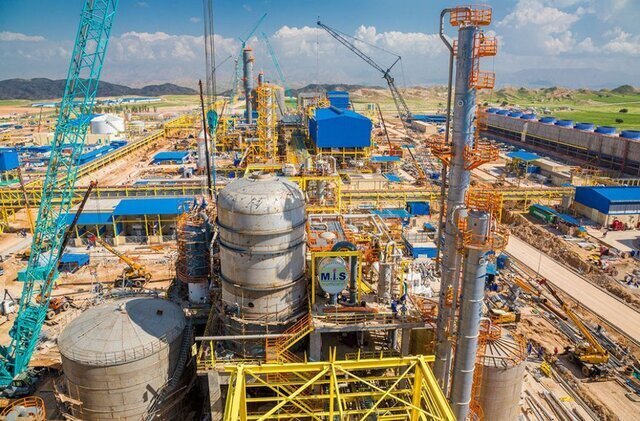Completing the value chain, main axes of development: NPC head

TEHRAN- The managing director of Iran’s National Petrochemical Company (NPC) said: "Completing the value chain and focusing on small-scale industries with limited water requirements are the main axes of development in this industry, and currently, several gas and industrial companies in the south of Fars province are investing."
Hassan Abbaszadeh said on Sunday at the opening ceremony of the Shiraz Oil, Gas, and Petrochemical Exhibition, referring to the industrial history of Fars province: "This province is the birthplace of the country's petrochemical industry, and about 60 years ago, Iran's first petrochemical unit began its operations in this region."
He announced the utilization of Fars province's gas capacity to supply the feedstock required by the petrochemical industry and added: "Shiraz Petrochemical is one of the first complexes that played an effective role in the development of the petrochemical industry and today, by producing diverse products, it has maintained its leading position."
In late August, the official said that lack of technical know-how, stable feedstock, investment, execution experience, and a suitable business environment are among the main obstacles to completing the petrochemical value chain.
Abbaszadeh told the third Iranian Petrochemical Value Chain Conference that the seventh five-year development plan emphasizes targeted expansion of value chains.
He said NPC aims to raise the industry’s installed capacity from 96.6 million tons to 131 million tons by the end of the plan (2027), while setting quantitative targets for each chain.
The sector produced around 75 million tons in 2024, with sales of 42.3 million tons worth about $23.8 billion in domestic and export markets, he said.
Utilization of nominal capacity stood at 78 percent, with about 22 million tons idle capacity linked mainly to unstable feedstock supply, representing nearly $17 billion in sunk investment.
Abbaszadeh stressed the importance of securing sustainable feedstock, particularly in propylene, which accounts for around 70 percent of input for value chain projects. He warned against channeling all propylene into polypropylene production, noting sufficient supply will soon exist and urging diversification into other chains.
He highlighted the need to adopt global technical standards, citing tougher regulations on plastics, and said careful selection of licensed technologies was essential to avoid marketing problems.
Abbaszadeh also pointed to limited execution experience and investor reluctance to enter value chain projects, saying real private-sector companies willing to take risks were better suited.
He underscored the importance of market studies, noting that specialty products face tougher sales challenges than bulk petrochemicals.
He added that Iran’s business environment has not fully adapted to value chain projects, although regulatory changes such as a tiered feedstock discount mechanism have begun to improve conditions for investors.
MA
